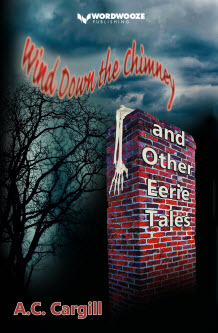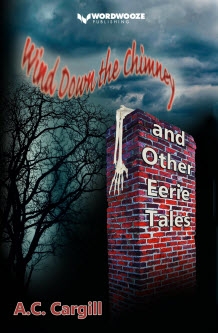Terry Haskill had lots of convivial company during his life, but now…
 See also on my website: How a Simple Romance Grew and Dealing with Life’s Thorns
See also on my website: How a Simple Romance Grew and Dealing with Life’s Thorns
This is another peek at my ever-growing, kudzu-like work of literary fiction, involving romance, drama, mystery (who’s really behind some of the tricks being played?), and above all a struggle to live truly free lives.
Jim O’Connell has bought up quite a few properties in Hammil Valley, saving people from bankruptcy or from working themselves literally into the ground. One of the properties he has offered to buy several times is owned by Terry Haskill. And now the time has come. Terry’s finding life a bit too thorny these days.
The Excerpt
Terry Haskill had worked as a tiler for forty years, gaining quite a reputation for the excellence of his work as well as his in-depth knowledge of tile, granite, marble, and related materials. His artistry had made him the tiler within Owens Valley and the surrounding areas. Even those celebrities who had their “ski homes” in Mammoth Lakes, the ski resort town on Mammoth Mountain, had used him.
As Terry’s reputation and income had grown and after about ten years of marriage, he and his wife had decided to go for a bigger home for them, their two sons, and their daughter, and so friends and family could visit and stay overnight or longer. They had bought a piece of land with an artesian spring beside the White Mountains and sold their house in Bishop for enough money to pay for building their dream home. They had lived in a small trailer near the construction site while the house was being built. Ted Waters, a local architect who had designed the Round House, had drawn up the plans. Terry and a friend did the foundation, framing, and exterior. And Terry finished off a lot of the interior himself, with help from his children. Naturally, he used ceramic tiles on the kitchen and bathroom walls and even laid the stone flooring that ran through the house except the bedrooms. There were six bedrooms—a master suite, a bedroom apiece for their three children, one for a housekeeper, and one for overnight guests. When the house was finished, it had seemed to nestle naturally into the high desert terrain, as Terry had hoped it would. It became an example of fine local architecture.
For a few years, Terry had had that family-and-friend ambiance he had wanted. His parents had stayed in that guest room on a regular basis. And his children had had friends stay for sleepovers. Terry and his wife had had a lot of his customers in for Friday night cookouts. Terry had felt happy and fulfilled. Then his parents became too frail to travel and stopped visiting, eventually passing away in a nursing home. His children grew up and moved away, there being no real job opportunities for them in the area at that time, and their college degrees in various fields made them in demand elsewhere. One son was in Silicon Valley building up a successful internet company. The other son was a professor at Harvard. Terry’s daughter was a consultant with the CEOs of Fortune 500 companies in the United States and elsewhere, traveling widely and almost never getting back home, especially after Terry’s wife had died suddenly one harsh winter of pneumonia.
A man who had been used to having a lot of people around—his wife, his children, their friends, his parents, and business clients in both Bishop and the tri-valley area—now found himself all alone and not able to handle it. Terry needed people around him. He needed their attention on him, their adoration. And no matter what it cost, he’d have it again.
Terry had begun achieving that goal by inviting friends over for an evening of food and fun. Some would bring along a female friend and a case or two of Scotch whiskey or other beverage of choice to supplement whatever Terry was serving. Things had grown from there with people from Los Angeles and Reno hearing about the parties and joining in. Even a couple of Mono County Sheriff Department staff, unbeknownst to Sheriff Ken Matthews, had dropped by a few times and had chosen to ignore some of the goings on, such as money changing hands in exchange for drugs and sexual favors. After all, it was a private party.
Jim’s attendance at one of these party evenings surprised most of the people already there. But his mission required that he see the goings on for himself and not rely on rumors.
“Terry!” called out Jim over the loud music.
Terry looked over in Jim’s direction with wide eyes, smiled, and waved. Jim waved back and made his way through the throngs of people and up to Terry.
“So, you decided to cut loose a little,” shouted Terry over the noise.
Jim just smiled and said, “Quite a place you have. Let’s go have a nice talk, maybe outside. The night’s warm, and I can’t hear myself think in here.”
Terry nodded and followed Jim outside to the patio between the house and the pool filled from his artesian spring. The moonlight reflected gently and peacefully on the quiet surface of the pool water in contrast to the party noise inside. Jim smiled at the serene reflection and also admired the craftsmanship of the tile work around the edge of the pool. And what he had seen so far of the house inside and outside was indicative of a true artisan, nothing slap-dash or hurried. Terry had taken the time to be sure everything was done right, even though he and his family had been living in a trailer during the construction.
Standing near the pool, Jim said genuinely, “You built a very nice home here, Terry. Great workmanship.”
Noise from the party going on inside the house drifted out in bits through the open patio doors.
“So, what’s up?” asked Terry, moving away from a couple who were getting rather hot and heavy in the shadows beside the house. “This is the first time you’ve accepted an invitation.”
He looked at Jim intensely, waiting and watching.
“I heard your eldest son has invited you out to Silicon Valley to live with him and his husband,” began Jim carefully. “Just wondering if that’s so, and if it is…”
“And if it is,” Terry continued Jim’s sentence, “would I sell this place?” He chuckled. “Yes, it’s true. He wants me out there because he doesn’t approve of my lifestyle here.” His chuckle turned into a hearty laugh. “Imagine that. My gay son doesn’t approve of my lifestyle! How times have changed.”
“He’s a good person and a considerate son who’s probably thinking of your health and how a lot of these people just sponge off of you,” added Jim in a totally serious tone.
Terry became angry, declaring vehemently, “They’re my friends! What would you know about friends? Do you even have any? Seems like everywhere you go, you make enemies by the dozen.”
“But Terry, they’re not your friends,” replied Jim calmly, ignoring the barb that he knew was based on unfounded rumors and not wanting to be goaded into anger or for Terry to burst out in a tirade at hearing the truth.
Instead of getting angrier, Terry seemed to collapse inside, his shoulders hunching and his back curving forward like a very tired old man, which is exactly how he felt at that moment.
“I know,” he said softly. “I just can’t take the solitude.”
He dropped into one of the chairs around the patio table and Jim sat in a chair next to him.
“Look, Terry, my offer still stands,” said Jim, looking at Terry with a serious gaze and a touch of sympathy. “You’re a good man inside. All the goings on here are just your way of filling that void in your heart. It could be your true salvation to live with your son in Silicon Valley, getting free of the moochers who had latched onto you through your loneliness and generous spirit.”
Terry looked down at the table surface, saying calmly as if he knew this decision was inevitable and that he had just wanted the right moment, “Good of you, Jim. I think the time has certainly come. This whole business is wearing on me. Tough to leave this house, though.” He looked up and around him. “So many memories.”
Jim sat silent and nodded in understanding. He knew the parties that had been going on at Terry’s house were not reflective of Terry’s true nature. Terry had built a business and career, been a loving son, husband, and father, and prospered by his own wit and uncompromising work ethic. He had dug out his own success in the vast rural and remote environment of the Eastern Sierra, which was no easy task, and Jim greatly admired him for that.
“There’s no hurry,” said Jim finally. “I just wanted to let you know for whenever you’re ready.”
Jim didn’t want to mention the email he’d gotten from Terry’s son in San Francisco, encouraging Jim to approach Terry again about the possibility of purchasing the property and thus making the move to that city a very logical step. Jim had chosen a Friday night to see the parties and was more convinced than ever that Terry’s son was doing the right thing.
“No, no, I want to do this right away—as soon as it can be arranged,” said Terry with a tone of finality.
A brief moment of silence passed between them. Then someone inside the house called out for Terry.
He broke the silence and said to Jim in a tired, confidential voice, “The time has come. I’ll call you in the next couple of days. Now, if you’ll please excuse me.”
He stood, shook Jim’s hand in appreciation, and went back into the house, assuming the role of party host again while Jim remained seated.
Well, now, doesn’t that sound like a great solution?
Unfortunately, Jim solves Terry’s problem but finds himself in another. Sigh. Life’s thorns seem inescapable.
Here’s wishing you a less-thorny life!
Thanks for reading here. And thanks, @Kathrine Elaine, for Thorny Thursdays!
Keep being inspired! Keep writing! Don’t let the naysayers get you down.
———

———
Thanks for reading. Please check out my first book of recently published eerie short stories (ebook, paperback, audio), and my new book of eerie Sci-Fi stories (Kindle only for now), both from Wordwooze Publishing. (I even designed the covers.)

Wind Down the Chimney and Other Eerie Tales: Ebook, paperback: Barnes & Noble, Amazon. Ebook on other platforms: Books2read. On Audible.
The Stardust Alliance and More: Ebook only for now on: Barnes & Noble, Amazon, and other platforms seen on Books2Read. Paperback and audiobook coming soon.






